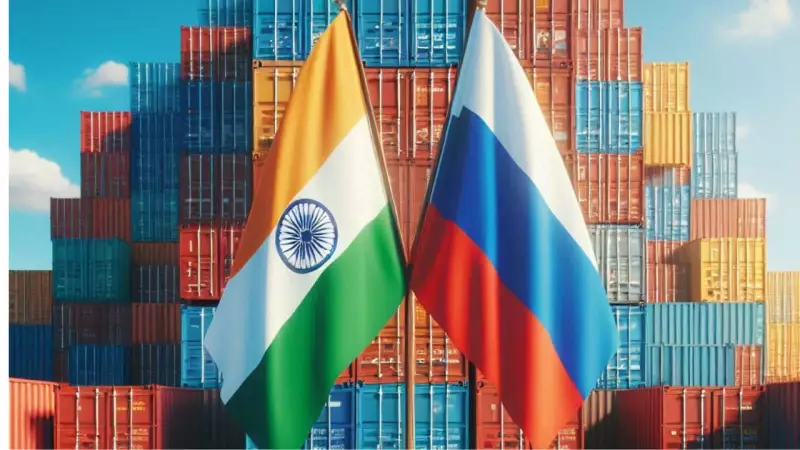
India has made a strong push for faster regulatory approvals from Russia to strengthen economic ties between the two nations. During high-level talks in Moscow, Indian officials specifically requested expedited processing for domestic establishments and registration of key export products.
Key Discussions in Moscow
Commerce Secretary Rajesh Agrawal, during his visit to Moscow, emphasized the need for improved market access and highlighted numerous opportunities for trade expansion. The discussions took place during the 26th Meeting of the India-Russia Working Group on Trade and Economic Cooperation, where both nations reviewed their economic partnership.
The commerce ministry outlined several critical issues raised by the Indian delegation. "The issues included expedited listing of Indian establishments and a systems-based approach with FSVPS in agriculture, especially marine products, and a time-bound pathway in pharmaceuticals covering registration, regulatory reliance, and predictable timelines," the ministry stated in an official release.
Comprehensive Trade Protocol Signed
A significant outcome of the meetings was the finalization and signing of a comprehensive protocol for trade and economic collaboration across multiple sectors. Commerce Secretary Agrawal and Vladimir Ilyichev, Deputy Minister of Economic Development of Russia, formalized this agreement, marking a step forward in bilateral relations.
Current bilateral trade between the two countries stands at an impressive $25 billion, but both nations have set an ambitious target to increase this to $100 billion by 2030. This represents a four-fold growth target that requires significant cooperation and market access improvements.
Expanding Trade Horizons
The working group identified several promising sectors for trade expansion, including:
- Engineering goods
- Chemicals and plastics
- Electronics
- Pharmaceuticals
- Agriculture products
- Leather and textiles
India specifically highlighted its strengths in several key areas that could support Russia's trade diversification strategy. These include smartphones, motor vehicles, gems and jewellery, organic chemicals, textiles, and leather products.
Services Sector Collaboration
Beyond goods trade, India is seeking greater cooperation in the services sector. Indian officials encouraged Russian entities to explore opportunities in IT-BPM, healthcare, education, and creative industries. Simultaneously, India requested smoother mobility arrangements for Indian professionals to help meet Russia's labor market requirements.
India also presented its Global Capability Centre (GCC) ecosystem as a potential platform for Russian businesses. This network comprises over 1,700 centres employing approximately 1.9 million professionals, offering Russian firms enhanced capabilities in business continuity, cybersecurity, design and analytics, and shared services.
Financial and Investment Cooperation
The discussions also covered financial cooperation mechanisms. India acknowledged Russia's interest in a bilateral investment treaty, and both sides agreed to explore payment solutions tailored to business needs, with particular focus on supporting medium, small and micro enterprises.
The Moscow meetings represent a significant step in strengthening the economic partnership between India and Russia, with both nations demonstrating commitment to overcoming regulatory hurdles and creating a more conducive environment for trade growth.






